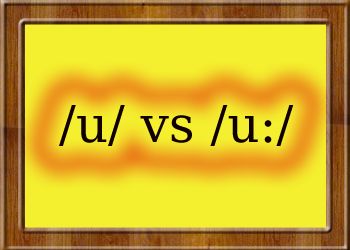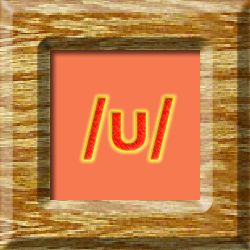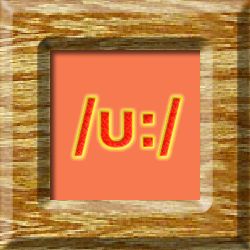Phonetics
Once again, although there are not general or fixed rules to know how words are pronounced in English, the study of the main spellings which are pronounced with either /u/ or /u:/ may become really helpful. So, click on the pictures below to learn which those spellings are.
| Elaboración propia |
Elaboración propia |
The following words have been taken from previous passages: movement, totally, however, should.
Place them in the correct box taking into account the pronunciation of the underlined part.
| /u/ | /u:/ | /au/ |
/ǝu/ |
Now, let's have a look at some of the terms that also appear in previous exercises: around, only, could, and too.
Could you place them in the correct box taking into account their pronunciation?
| /u/ | /u:/ | /au/ |
/ǝu/ |
Place the words from the box in the correct list taking into account whether they contain either sound /u/ or /u:/. Write them in order of appearance.
 |
| Elaboración propia. |
|
who - would - whose - should - bush - took foot - book - put - move - could |
| /u/ | , , , , , |
| /u:/ |
,
,
,
,
|
To pronounce the words with diphthong /ǝu/, you have to take into account that this diphthong does not sound /ou/. In fact, diphthong /ou/ does not exist in English. In order to distinguish and learn how to pronounce both diphthongs in English, watch the videos below.
| /au/ |
|
|
/ǝu/ |
| how - now - no - go - knows - so - won't - only - without - alone - show- hold |
Fill in the blanks with the words in order to complete the two lists below.
/au/:
,
,
/ǝu/: , , , , , , , ,

